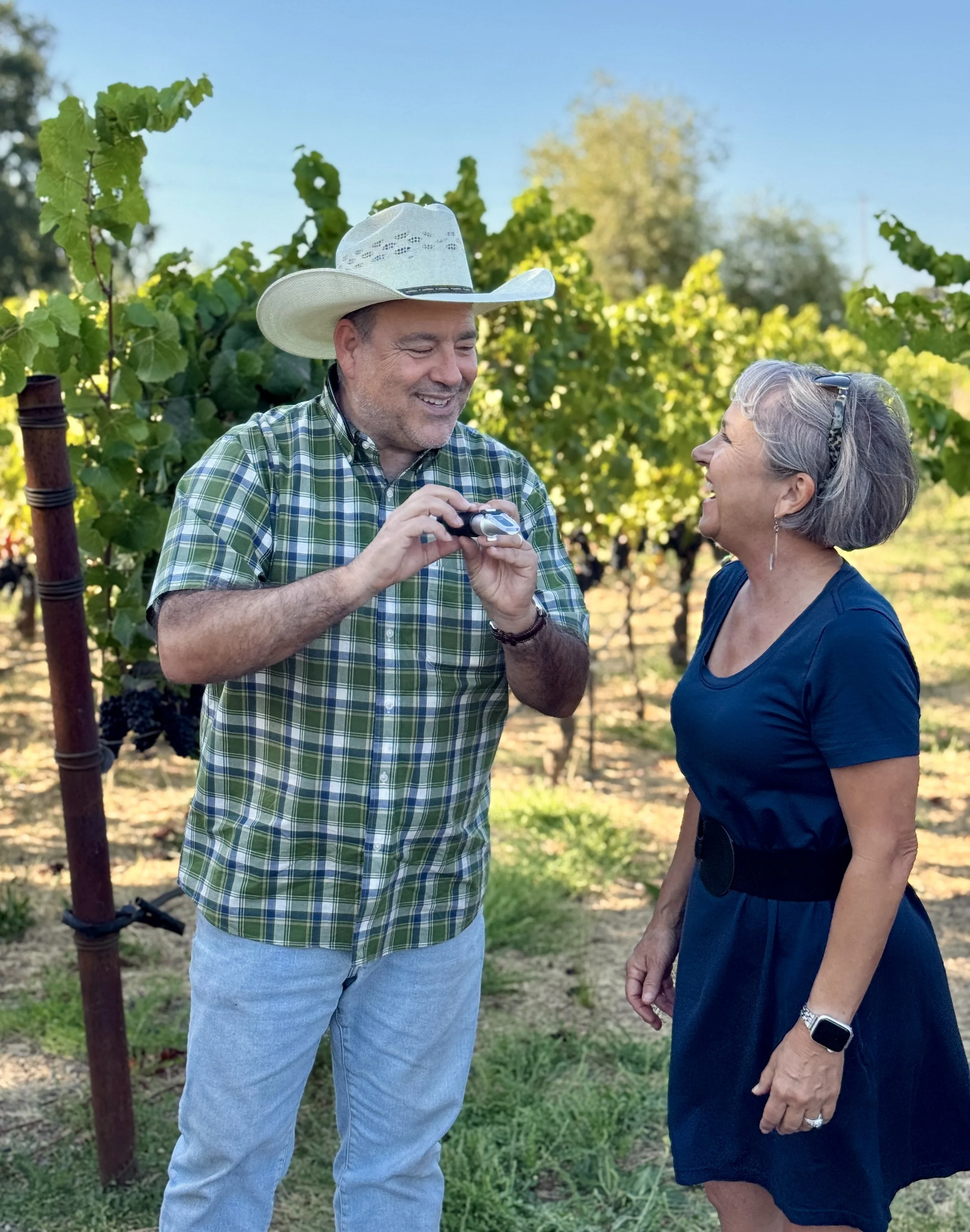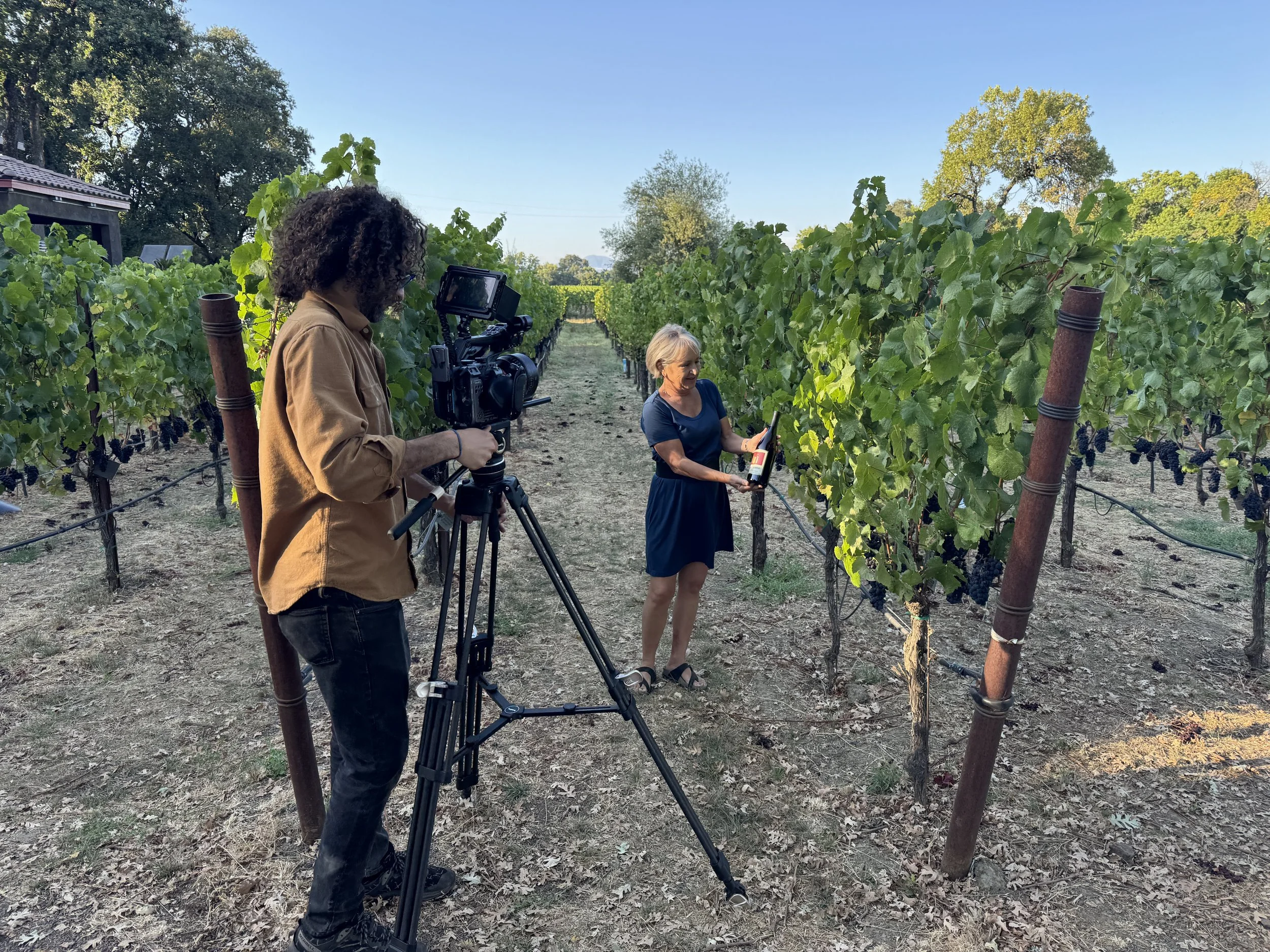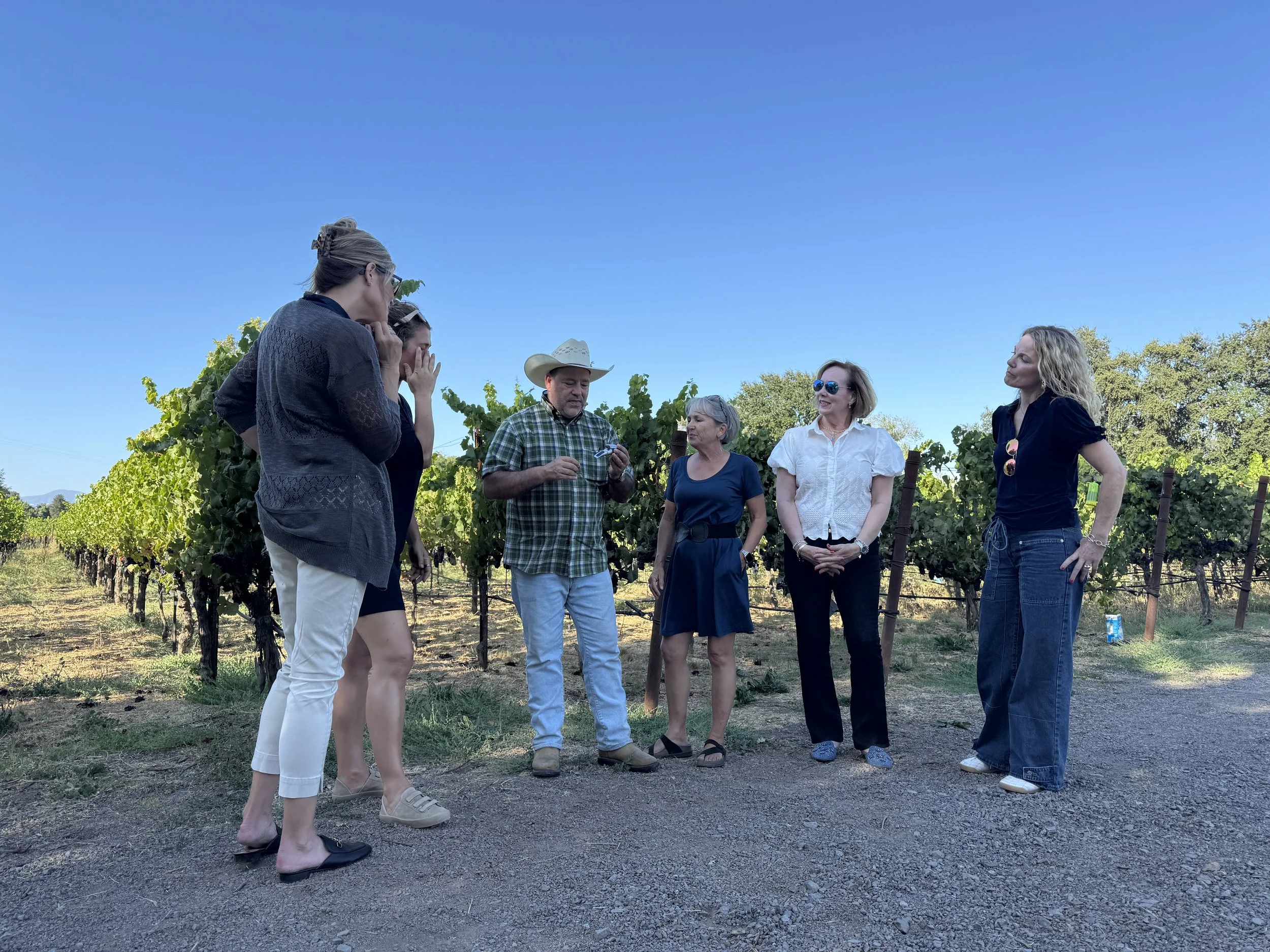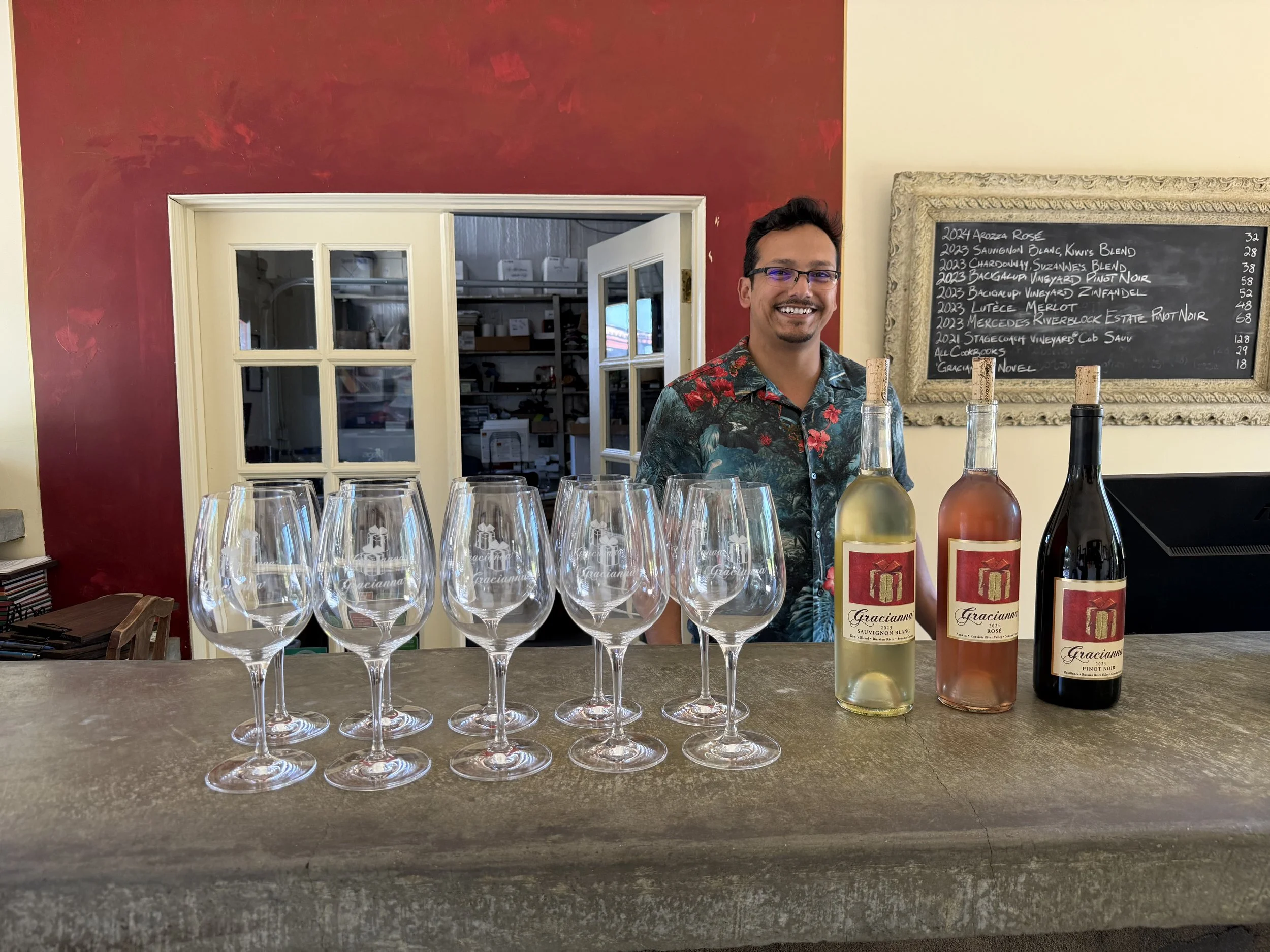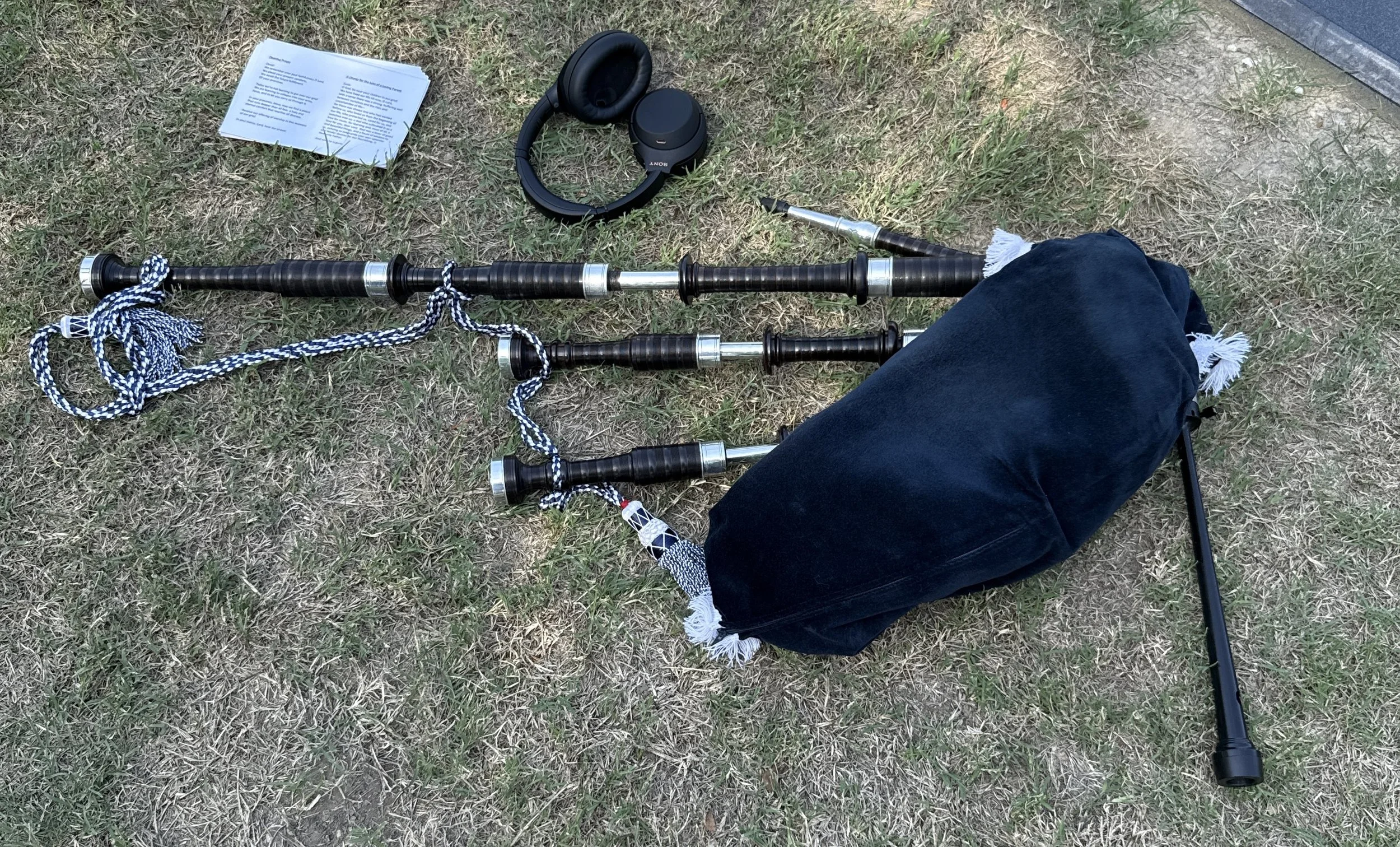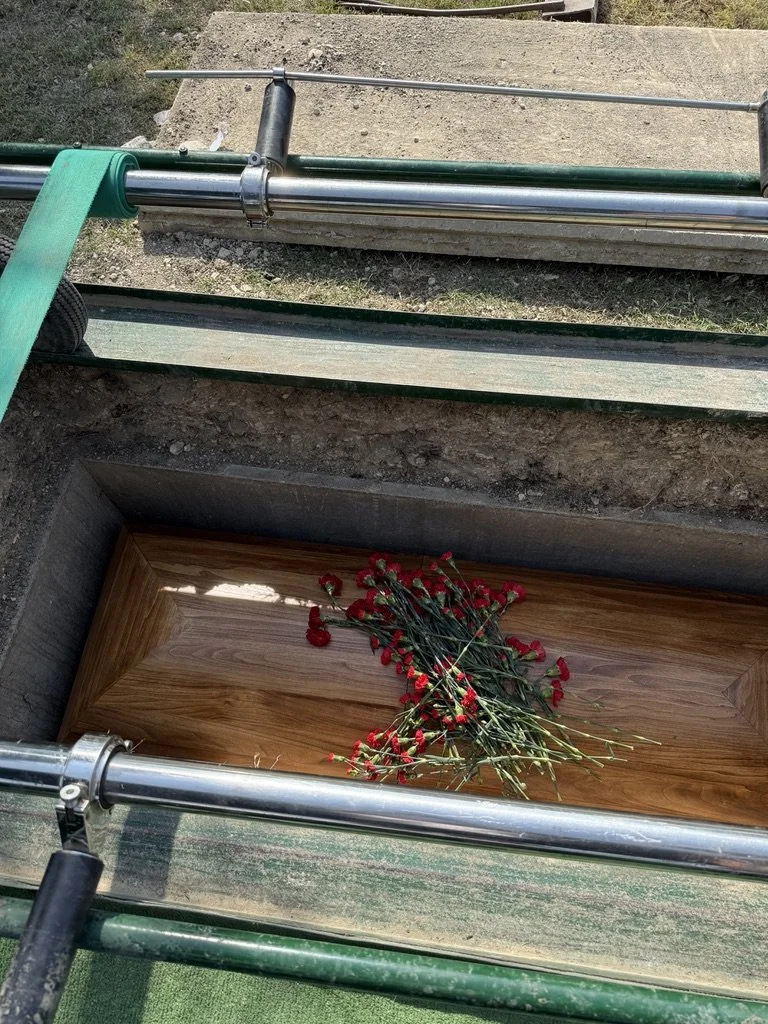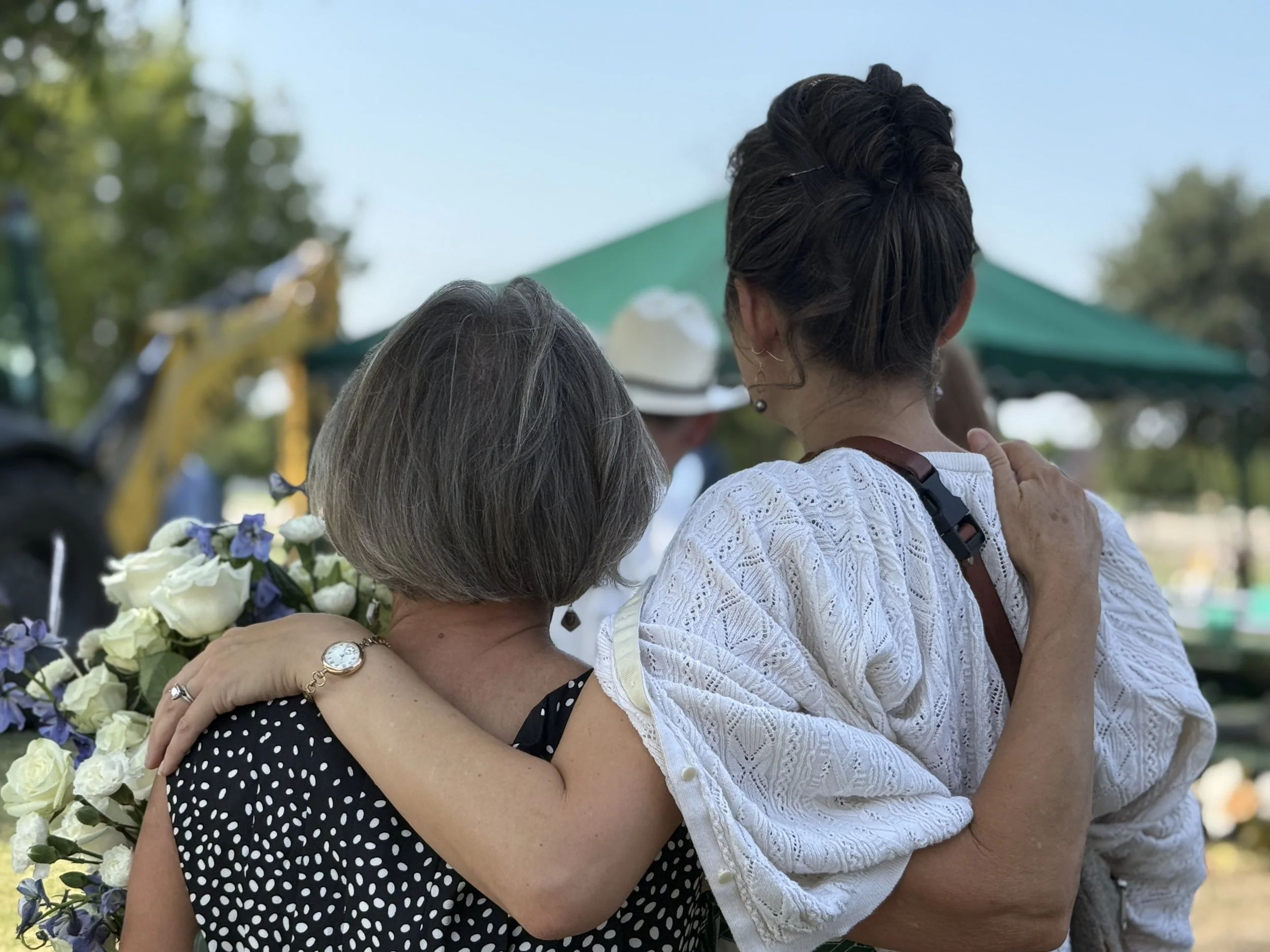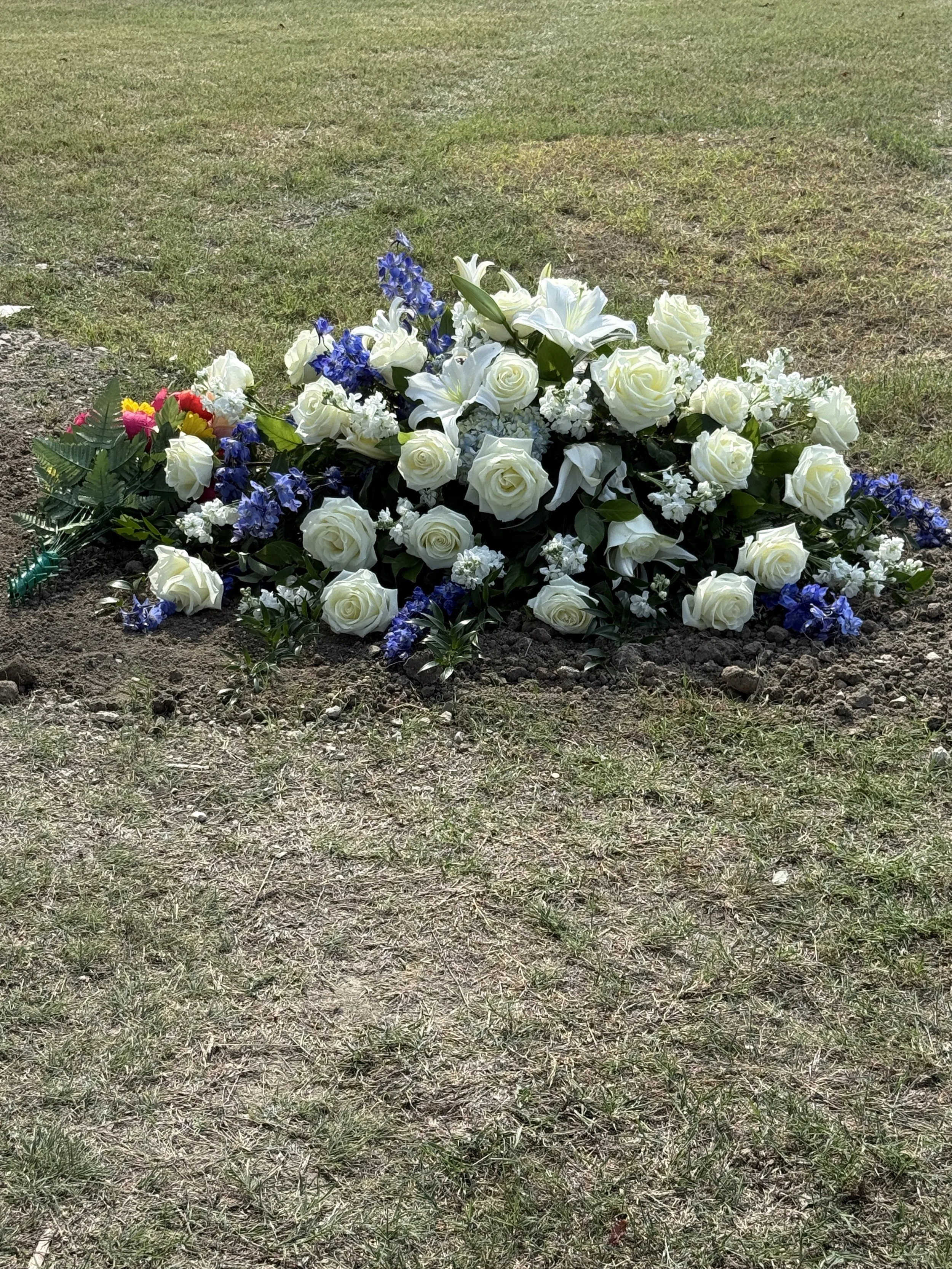Harvest as Paradox
Focus
In times of crisis, a paradox mindset is vital to flourishing. It allows us to embrace, rather than reject, the tensions associated with competing demands.
In the Vineyard
Two weeks ago, we celebrated the fifth and final photo shoot with Faro Films for our Conversations in the Vineyard brand video in the Mercedes Block vineyard at Gracianna Winery. The vines were heavy with pinot noir fruit, just days away from harvest. We played team-building games, ate soft tacos, drank rosé and pinot noir, laughed at getting sprayed with grape juice, marveled at the beauty of the vines, and enjoyed each other’s company. In a place where the overarching theme is gratitude, and “wine is for people who have something to be grateful for,” my heart was full. I was exhausted, but I had been joyfully present to the goodness of the day.
Yes, my heart was full, but it was also breaking. A few days earlier, my siblings and I had decided to put my dad on hospice care. I knew I wouldn’t be able to travel to Texas to see him before the shoot. I felt trapped by the limits of time and money and was tempted to fall into an angry, scarcity mentality. Instead, on the morning of the shoot, I invited the team to lean into a paradox mindset.
I asked my colleague to collect a handful of pebbles from the landscape and give a few to each person. I invited each of us to contemplate the pebbles in our hand and give each of them a name of some situation or some person that was heavy on our heart. We acknowledged together that we had all come into our workday with something we were carrying, maybe unbeknownst to anyone else. Without denying any of it, we took a few minutes to quietly set each representative pebble on a firm table close to us. Naming the pebbles and setting them down in a safe space helped us enlarge our inner mindset and allowed us to embrace the paradox of struggle inside of joyful work.
That evening, after a productive day of shooting, I heard my dad say on video to me and my siblings, “I love you guys.” Those were his last words. Early the next morning, my sister called with the news that my 89-year-old dad had died peacefully in his sleep.
We buried my father on a Sunday. The Texas sun was hot, and the pop-up tent over green velvet, slip-covered folding chairs provided welcome shade as the family gathered facing what would be his final resting place.
All six grandsons carried the simple wooden casket from the hearse to the waiting platform positioned over the grave. Sliding it into place, the platform shifted under the weight. A spray of blue and white flowers was positioned on top of the casket, and tears flowed down my cheeks, a moan catching in my throat. It hit me that my dad’s substance was not just physical. In the moments and hours that followed we would attempt to remind ourselves and convey to others the influence of a life well-lived.
As the oldest child, I stood to speak but struggled to get the words out. Emotion overwhelmed me and, finally, using a loud voice to push down the tears, I begged, “Oh God, be near your children in our grief.” The liturgy was short, laced with words of grief and words of hope.
The bagpipes played Amazing Grace as the casket was lowered. We filed past the rectangular scar in the earth, each of us lovingly dropping a red carnation on the curved, wooden top. The earth was closed and the blue and white spray of flowers placed on top of the dirt.
Later in the day, we celebrated Dad’s life with many others who knew him. We sang some of his favorite hymns, shared reflections and photos, and listened to a homily fashioned around his favorite quote. We pondered together the wide influence he had on us and on the world. We cried, and we laughed. We were somber, and we rejoiced. As we held the paradox together, sadness of loss and the joyful hope of heaven, our hearts expanded.
Flourishing Metaphor
“I have found that a paradox mindset is vital to flourishing, especially in times of crisis. It allows us to embrace, rather than reject, the tensions associated with competing demands. ”
A paradox mindset can be developed by practicing a few things:
Reframing an either/or question into a both/and question
Embracing a certain level of comfort in the midst of discomfort
Intentionally searching for innovative ways that two seemingly competitive realities can co-exist and even be mutually beneficial
Source: Overwhelmed? Adopt a Paradox Mindset
Successfully navigating the harvest season is a testament to a winegrower’s comfort and maturity with a paradox mindset. Harvest is a beautiful time of year, with its own crises! Imagine the competing realities of a limited workforce and grapes that must be harvested in a certain window of time. A both/and solution to a limited workforce includes training interns during harvest, including interns from other parts of the world where harvest is at a different time of year. Farmers are remarkably comfortable with the discomfort of the unknown, especially as it relates to weather. Heat and harvest often happen at the same time, making it difficult to get the fruit to the winery before it starts fermenting. An innovative solution has been to harvest at night when the grapes are cooler. Electricity and generators help with this!
What are some positive results, creative innovations, and ongoing strategies that have come from embracing a paradox mindset in your personal life or on your team?
Does your team need a shift to a
paradox mindset?
We can help with the transformation.
Feel free to schedule a call and fill out a Discovery Form. We can work together to customize your team retreat for any season.
As always, I’m with you on the journey through the seasons,
Susie Lipps

